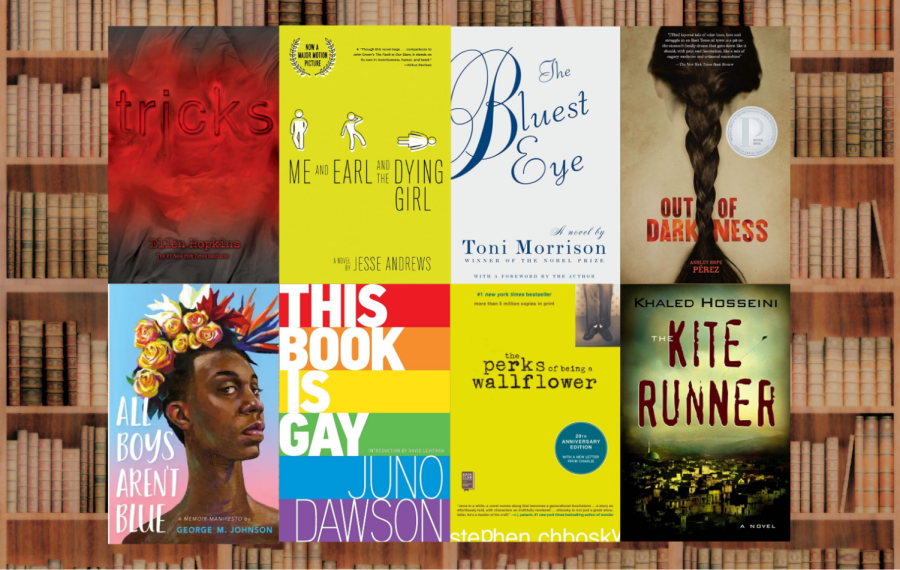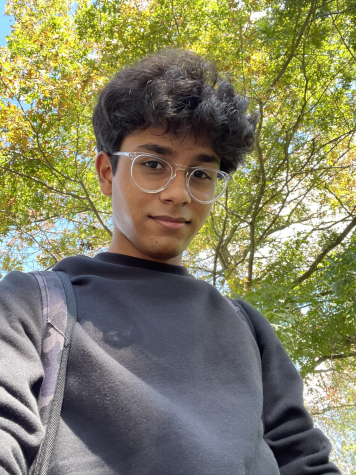Challenged Books Will Remain in MSD Libraries
May 2, 2023
After undergoing a months-long review process, eight criticized library books will not be removed from the MSD school libraries. As an ongoing topic of debate in the community and the country as a whole, let’s take a look at the events that led up to this decision.
At the Jan. 17 MSD school board meeting, several community members took the courtesy of the floor to question the content in MSD libraries. Arguing that these books contained graphic sexual content and other materials unsuitable for children, the speakers accused the board of various faults ranging from endangering their children to committing criminal offenses.
At the Jan. 24 meeting, new speakers came to the floor to defend the books under fire. This included teachers, parents, and even students, all speaking on how these books’ difficult topics were exactly why they are so important to teens trying to find their place in the world.
According to MSD Policy 109, if a parent/guardian has a concern with an educational resource, they must fill out a formal reconsideration form. Following the Jan. 17 meeting, the district received reconsideration forms for eight books: Tricks, The Kite Runner, The Bluest Eye, Me and Earl and the Dying Girl, This Book is Gay, The Perks of Being a Wallflower, All Boys Aren’t Blue and Out of Darkness. A committee was then formed, made up of at least two teachers, a librarian and a building administrator, to all read the books and determine their appropriateness for the school libraries.
The literature in question is primarily high school reading materials, with Me and Earl and the Dying Girl being the only book in the Arcola library and none of them being in the Skyview or elementary school libraries. Four of the eight books involve LGBTQ issues and characters. Four of the eight books directly involve issues of race. Five of the eight books are on the American Library Association’s list of the Top 10 Most Challenged Books of 2021.
This reaction is not an isolated incident, but rather part of a larger movement sweeping across the nation. The American Library Association documented over 2,500 unique titles targeted for censorship in 2022, a substantial increase from the 1,800 titles of 2021. With at least 300 chapters of organizations pushing these bans forward, the most success has been found in Texas and Florida. Pennsylvania has become the third biggest state for book restrictions in recent years. Close to home, the Central Bucks School District now has five books under review and over 60 more being challenged.
At the board meeting, speaker Amy Cirillo denied any accusations of censorship. “For the record, I don’t want to ban books…. Remember that these resources with graphic adult content are available to children in the high school as young as 13… Can any of you tell me how pornography has any educational value?”
One speaker, Vince Josaphs, became especially heated, having to be escorted out by security while shouting at the board members “I will make sure you go to jail for giving smut to children… You’re pedophiles!”
Mrs. Woudenberg, MHS librarian, pointed out two major benefits of tackling these difficult subjects.
“These books allow students to see themselves and identify with characters that are like them. It’s an important thing at this age to be able to see people like yourself around you. Also, it’s important to have students read and learn about people that are different from them. Difficult subjects help teens relate the characters to their own struggles and help them understand the world around them.”
Mary Meanix, AP English Literature teacher, has spent years teaching high schoolers how to analyze literature. She told the Windy Hill more about the benefit of learning about other people’s lives.
“Reading a book about something that’s traumatic, even though it’s upsetting, is actually a safe way to learn what the world is like for other people. The truth is that we live in a world where bad things happen. Even though those books contain content that’s hard to talk about, they allow people, both kids and adults, to understand a little bit more about experiences that they will hopefully never have to experience. That’s how we build compassion.”
Another point frequently brought up in these conversations across the country is that the people pushing to restrict these books frequently haven’t actually read the book themselves. At school board meetings across the country, fragments of books are read aloud to show their explicit content.
Peter Schlenker, grandparent of an MHS student and one of the speakers supporting the book restrictions, said “I have not read the book myself. I never intend to read the book myself, but I’ve had portions distributed to me of this book.”
Mrs. Woudenberg said, “Cutting a piece out of a book and sharing it out of context loses the meaning of the rest of the book. It’s really important to look at a piece of literature as a whole and not just take out a sentence here and there.”
With many of the books telling the stories of LGBTQ and POC individuals, the book restrictions have also been criticized for taking away valuable representation of marginalized groups. PEN America, a free speech nonprofit organization, identified in its 2021-2022 Index of School Book Bans that across the nation, 41 percent of the banned content involved LGBTQ+ themes, and 40 percent involved POC themes.
Abby Peffer, MHS sophomore, said, “When you apply your personal beliefs to something everyone has access to, it is detrimental to kids like me who want to see representation of kids like us or even of people who are not like us because it teaches empathy and awareness. I know all parents want what is best for their children, but I just want you to know that books help us understand ourselves and our place in the world, and having access to books with representation is fundamental.”
Michael Chapin, AP English Language teacher, disagrees with the view that children need to be protected from books. He says “I don’t think that books are dangerous. I don’t think that keeping books away from students keeps them safe.” He further pointed out that it often goes the other way around: books protect children, keeping them safe by helping them understand themselves and the world better.
Peter Schlenker, speaking again at the Jan. 24 board meeting, said that his issue with This Book is Gay is not with the LGBT character of the book, but with the sexual content itself.
At the March 28 school board meeting, Superintendent Zerbe announced that the panel had finished its lengthy review of the eight criticized books and unanimously approved them all for continued circulation in the MSD libraries.
Mrs. Woudenberg said of the decision that “It was good that the process was followed. It’s healthy and natural for parents to question some books, but the books we purchase for the library are already vetted and credible and appropriate. Students should be concerned with any attempt to limit their access to information, even if they’re not big readers.”
Rebecca Katagnes, local journalist, said at the Feb. 28 board meeting (and in an article on the Mercury) that she had interviewed some of the parents who had raised the issue. “Did they coordinate their efforts for political purposes? Not one. Were they trying to shelter their children? Did they oppose sex education? Did they object based on religious beliefs? No, no, no, and no. I stand before you with one simple request of inclusivity: that we do not dismiss those with different ideas or opinions as simple political hacks.”
With the review at Methacton having come to an end, but book restrictions still taking place across the country, Ms. Meanix had a message for the students they affect the most: “Students should care about this because libraries are an important part of democracy. Everyone’s entitled to their own beliefs, but everyone should also be entitled to the opportunity to learn and build those opinions. That’s the most important function of a school, and a library is the heart of that purpose.”





John Flood • May 3, 2023 at 7:50 am
This was an excellent article as a candidate for school board it is imperative that we protect the rights of students to read books.